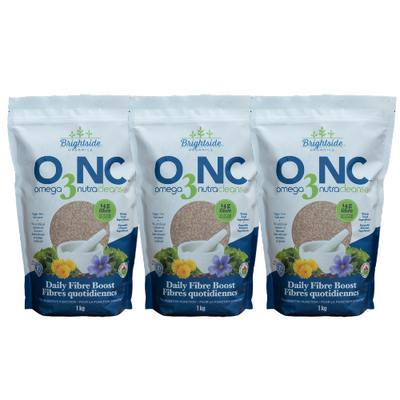Heart Disease and High Cholesterol
Chances are, you’ve heard about cholesterol in one context or another. Whether you notice it painted on top of packages along the grocery aisle, proclaiming, “a naturally cholesterol-free food,” or if it was brought up in your doctor’s office, conversations about cholesterol are everywhere.
The reason for its prevalence is that many people getting by on a standard Western diet should be thinking about their cholesterol, and about the possible implications of leaving it unchecked—like heart disorders, stroke, and other heart diseases.
But, before we get ahead of ourselves, let’s first talk about what cholesterol is, and the various forms it can come in.
Cholesterol is naturally produced by the liver and lives within all the cells in your body. It can also be introduced through the foods you eat, especially from high-fat meat and dairy products.
When present in the appropriate amounts, cholesterol helps your body build cell membranes, various hormones, and Vitamin D. But, when it gets out of balance, it can collect as plaque along your blood vessels, restricting the blood flow to and from your heart.
Balanced cholesterol levels have the right amounts of the two types of cholesterol, with our culprit LDL, being widely considered the “bad kind,” and HDL thought of as “the good kind.” LDL cholesterol is transported around the body to perform its critical functions, and HDL cholesterol is responsible for flushing out any excess LDL—bringing the waste back to the liver to be processed.
When there is too much LDL or too little HDL cholesterol, unused LDL is left behind in the bloodstream, clogging blood vessels, and consequently, putting a strain on the heart.
Many people—because of factors like diet, lifestyle and genetics—have unbalanced cholesterol levels, making heart disease one of the biggest risks facing people today.
But, we have good news. Here’s where O3NC comes in.
High in fibre and rich in Omega 3 fatty acids, O3NC helps restore the balance of LDL and HDL cholesterol when regularly incorporated into your diet.
Fibre, found naturally in plant foods, has many incredible functions, one of which being its binding effect on unused cholesterol particles in the digestive system. The fibre does this by bringing cholesterol into the small intestine, wherein it attaches to the cholesterol and is digested instead of being absorbed by the body. ⅓ cup of O3NC features 8 grams of soluble fibre, the expert-recommended daily dose for most people.
In addition to fibre, O3NC contains Omega 3 fatty acids, which can help improve the function of HDL (the good kind) of cholesterol, as well as contributing to increased blood flow and reduced inflammation.
O3NC’s one-two punch of fibre and Omega 3s can have a significant impact on your heart health, helping prevent heart disease, and promote a better functioning you for years to come.


